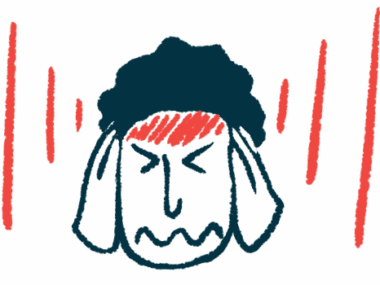Living with NMOSD has made me feel like a double agent
Sometimes I'm better off not sharing the challenges of my rare disease
Written by |

Having a rare disease such as neuromyelitis optica spectrum disorder (NMOSD), especially when it’s an invisible disease, is like being a double agent. While some people in my life know about my health challenges, I don’t broadcast them to everyone. In such cases, withholding my NMOSD thus becomes a lie by omission, one that makes me feel guilty and affects my mental health. It’s tough to keep who does and doesn’t know straight in my mind, as well as the extent that each person knows.
While having brunch with a good friend recently, I didn’t feel I had an opportunity to share how tough things had been for me over the summer. It’s not that I feel uncomfortable sharing with her; it’s that we only see each other every few months because of our busy schedules and had a lot to catch up on.
Had I dropped my health status on her, it would’ve no doubt taken over most of our time together, and I would’ve missed out on hearing about her kids’ accomplishments, their recent travels, and what she’s looking forward to over the holiday season.
Her care for me is what pure love and friendship are all about, but so are my being selfless and wanting to know what’s going on with her. NMOSD has been on my mind so much recently that it’s nice not to talk about it, to be treated as though I’m having a regular day — despite my plasmapheresis or the plasma exchange port in my chest, which I’d strategically hidden under a bulky sweater for this brunch date.
NMOSD on the job
The greatest challenge I’ve endured with my double lifestyle is when to disclose my condition at work, if at all. In the past, management finding out about my diagnosis would lead to me being overlooked for opportunities I’d excelled at before and that, through seniority, I should’ve been offered. I’m not disappointed because I’m working on other projects with clients, but that’s not the point. When disease has already taken so much from me, it shouldn’t take away from my ability to contribute to the workforce. But let’s be fair: For most NMOSD patients, it’s happened before, and it will again.
I’m thankful that my NMOSD disruptions have been minimal, but that’s because of my willpower and stubbornness. I can stand on a soapbox and scream to the heavens about all the inequalities people with disabilities face, including financial constraints, which are possibly our biggest stressor. Yet to have a decent quality of life, we must operate as double agents so we can earn salaries.
When the world is finally quiet, I lie awake at night worrying about what would happen if my colleagues discovered my truth. What if they already know and haven’t said anything? While I’d expect them to be sympathetic, I can’t help but imagine that they’d feel, at least a little, that I’d lied to them.
What’s difficult to explain is how hiding my truth and operating like a double agent give me the strength to exist, which has nothing to do with anyone else. It’s how I hide the amount of pain I’m in every day, or how I might throw up lunch and then need to find the courage to power through that strategy meeting, or how I receive plasma exchange at 7 a.m. to make it to work by 9 a.m., all without anyone knowing.
Being a double agent is my superpower because no one knows how tough I really am, which to me becomes the difference between surviving and thriving.
Note: Neuromyelitis News is strictly a news and information website about the disease. It does not provide medical advice, diagnosis, or treatment. This content is not intended to be a substitute for professional medical advice, diagnosis, or treatment. Always seek the advice of your physician or other qualified health providers with any questions you may have regarding a medical condition. Never disregard professional medical advice or delay in seeking it because of something you have read on this website. The opinions expressed in this column are not those of Neuromyelitis News or its parent company, Bionews, and are intended to spark discussion about issues pertaining to neuromyelitis optica spectrum disorder.







Leave a comment
Fill in the required fields to post. Your email address will not be published.